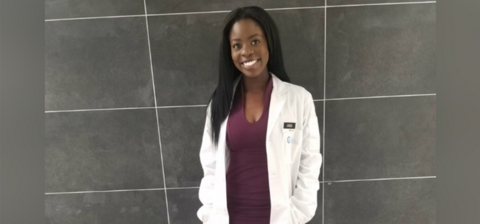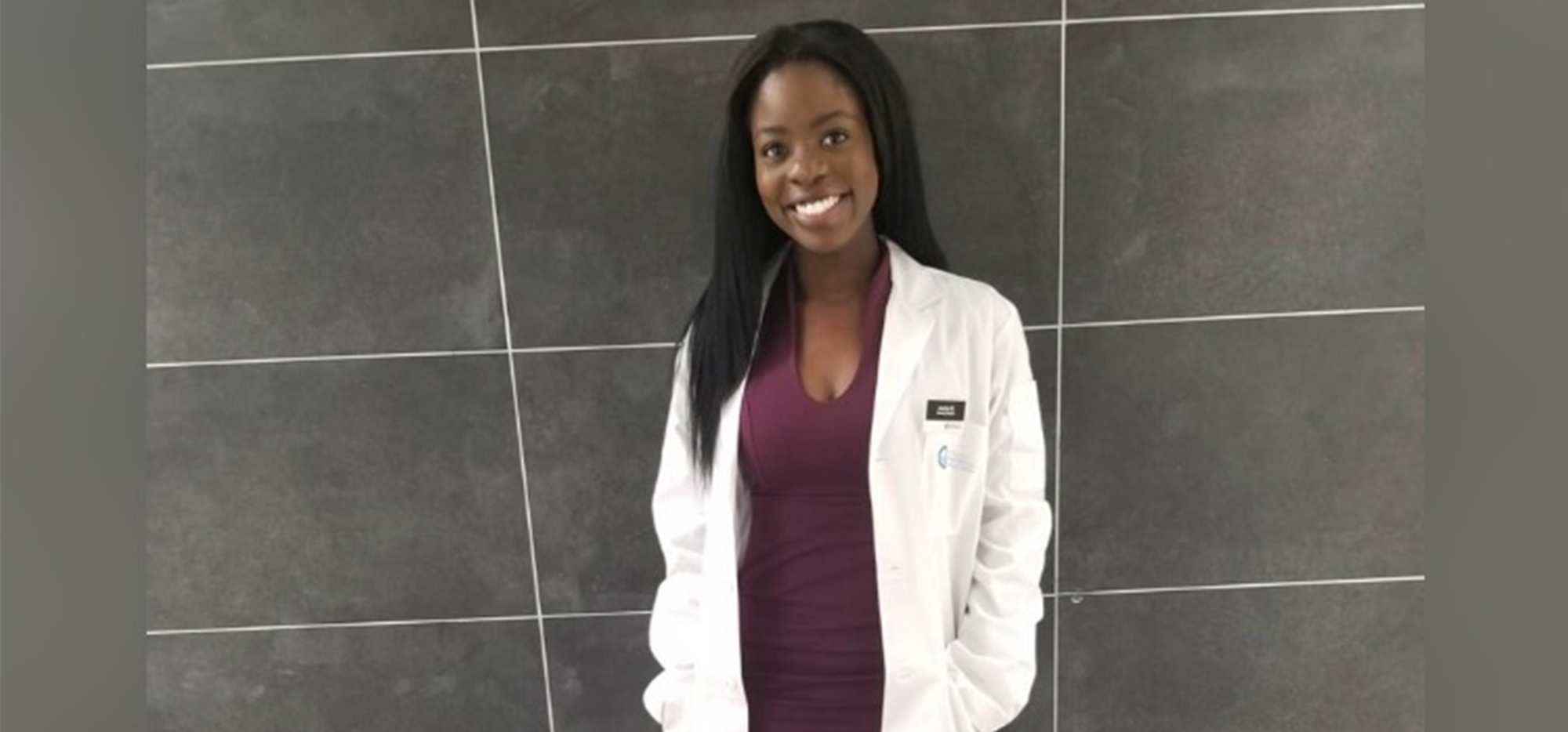
No matter the skin colour

Jocelyn (above) shares her experiences and hopes for diversity in health care
By Jocelyn Bonti-Ankomah, Rx2023, pharmacy student
Black history month is a month to be reminded of Black history and recognize the amazing accomplishments of Black figures that have and continue to fight for the rights of Black people. It is a time to celebrate these great achievements, but it is also a time to be aware of the challenges experienced by Black people and advocate to address those challenges. This includes the challenges experienced in the health-care system, where I’ve personally experienced gaps for Black people as both a patient and a health-care professional.
As a Black woman, I have experienced challenges as a patient. There have been a few times where I’ve been told by physicians that they are not certain about a given diagnosis because “they are not taught on how conditions look on darker skin or darker women.” I’ve been asked to go to multiple different doctors for a second opinion because “they are not positive about a diagnosis because of my skin colour.” I’ve also been given a wrong diagnosis several times due to the uncertainty around appearance of conditions on darker skin. These times have caused me anxiety and stress, something that unfortunately I have come to realize that many Black people, especially Black women, have experienced.
The University of Waterloo School of Pharmacy has made great efforts to display symptoms of varying conditions in lighter and darker skin complexions, and there have also been great improvements in the health-care system that we should celebrate. However, it is not only up to the professors and the school to advocate for Black people in health care. It is also up to the health-care professionals. We must also educate ourselves and fill in the gaps of knowledge that we may not be taught in school. It is important to provide a safe and trusting environment for all patients, which unfortunately many times Black people do not receive.
As a Black woman, I have also experienced challenges as a health-care professional. For example, being a Black health-care professional has exposed me to microaggressions. During my co-op work terms I’ve had patients make comments or question my capabilities, not only because I am a woman, but because of my skin colour. I’ve had a patient continuously question if I was a pharmacy student and discredit my credentials, and I’m sure there are many other Black health-care professionals who have experienced similar situations. I believe one of the reasons for this is because sometimes there can be a lack of diversity in health care, which is something that made me question my capabilities to become a pharmacist growing up.
I may not be able to point out the one main cause of this lack of diversity, but what I do know is that we need to encourage Black students and remove barriers that keep Black students from becoming health-care professionals. Now an adult, I hope to be able to encourage any Black student who is aspiring to be a health-care professional to feel empowered by the work that they do, to never give up, and to not be discouraged by the current lack of diversity. I’m grateful that I am in a position to help improve therapeutic outcomes for patients, while also being able to be help normalize Black women and men in health care.
No matter the skin colour, patients should be able to feel confident in their health-care professionals. No matter the skin colour, health-care professionals should not be discredited or deemed less capable.
I’m happy to see the strides made towards advocating for Black women in health care, but there is always room for improvement. I’m hopeful that as we move beyond recognizing some of these challenges and working towards advocating for change, we will be able to see greater support for Black professionals and hopefully, more diversity in health care.